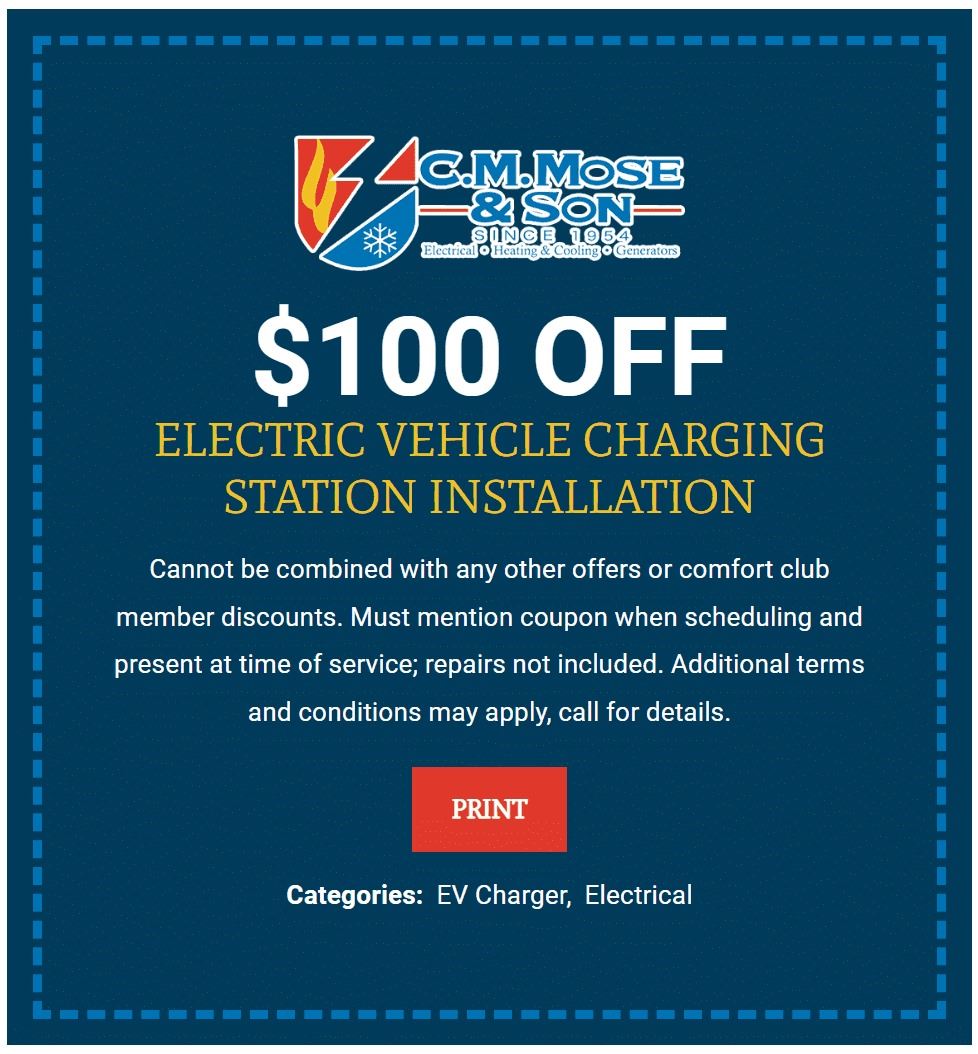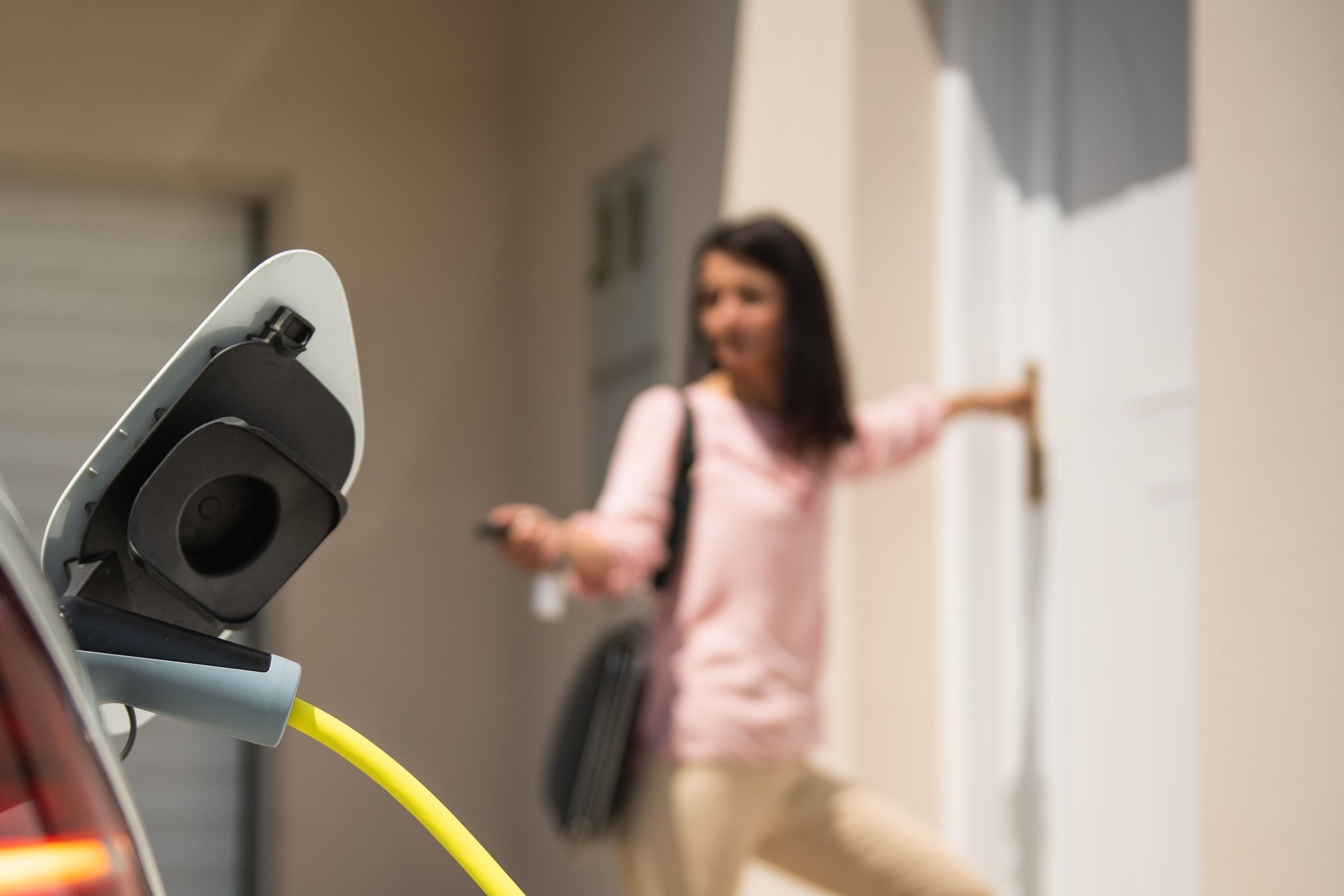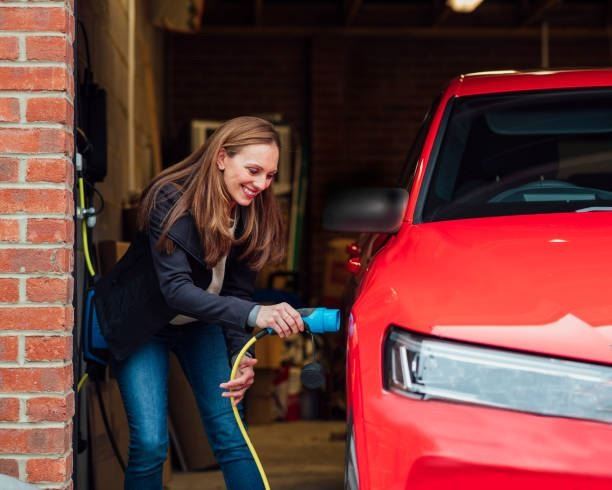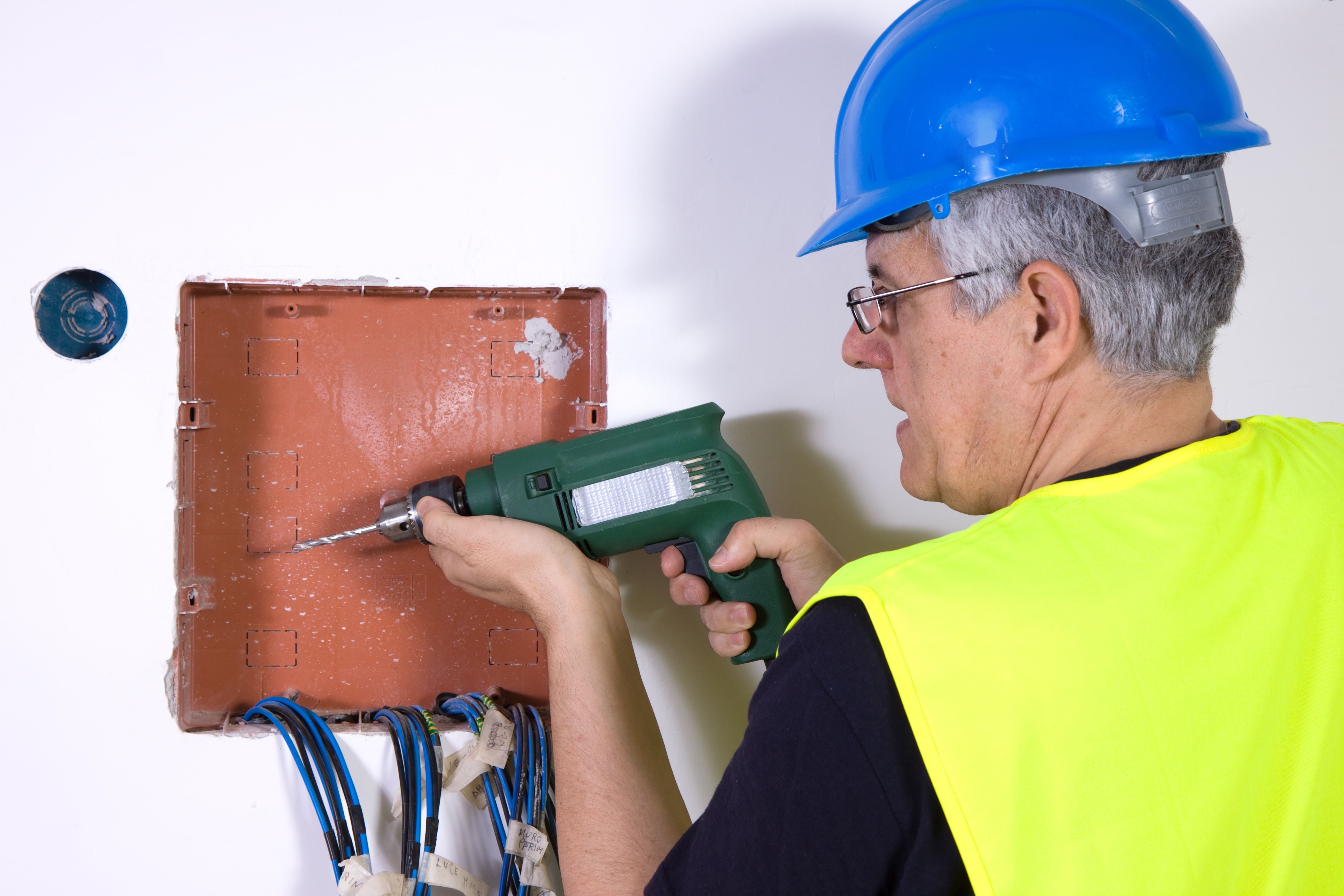The commercial infrastructure for Electric Vehicles (EVs) continues to grow, with many local supermarkets, malls and public facilities providing charging spots and other EV amenities. In fact, by January 2022, the U.S. had almost 113,600 charging outlets for plug-in EVs.
Kansas City is no exception to this trend. Kansas City manager Brian Platt recently announced that all new municipal fleet purchases for the City of Kansas City would be full battery electric vehicles. What’s more, there are now over 1,000 public charging stations now operating throughout Kansas City.

Visit our Coupons page for more local deals.
However, many Missouri and Kansas residents may have to drive long distances to find an EV station, especially if they reside in a rural neighborhood or well outside Kansas City and other large urban areas.
Even with an expanding network of charging stations, most EV owners find the most practical place to charge their car is right within their own home. After all, this is one of the biggest benefits of owning an EV: no more lining up at COSTCO each time you need to fill up!

But many EV owners are intimidated by the process of installing an EV charging station at home. After all, how does one navigate the different product options, costs, voltage needs, safety demands, legal requirements, and other considerations?
Just like with other high-voltage electrical products – a generator, an air conditioning system, or a solar panel system, for example – what counts most is who you choose to do the installation. That’s because everything that matters when installing electrical equipment at your home – safety, price, quality, warranty, licensing, and permitting – hinges on the company you choose.
Here’s what you need to know to choose the right EV charging station and installation company.
What type of EV charger do I need?
There are two primary types of home EV charging:
- Level 1: 120 Volt
- Level 2: 240 Volt
Most EV manufacturers will provide the consumer with a Level 1 charging cord upon purchase of the vehicle. This can be plugged directly into a standard household 120-volt outlet. However, upgrading to a Level 2 charging installation station is usually a worthwhile investment.
The biggest difference between Level 1 and Level 2 charging is the speed at which they charge. A Level 1 charge will typically add around 4 miles of range per hour charged, whereas the faster Level 2 station will add 18 to 30 miles of range.
In other words, if your EV is charging for 10 hours overnight, a Level 1 charge will only provide 40 to 50 added miles, whereas a Level 2 charge will provide 200 to 300 miles. Level 1 charging might suffice for consumers who only drive a small amount each day, but those with longer commutes or more extensive travel needs should strongly consider upgrading to Level 2. A recent JD Power study indicated that EV drivers are happiest with their home charging when they use a dedicated, installed Level 2 station.
Even if you do decide to stick with Level 1 charging, it’s a good idea to have a licensed electrician inspect your home’s electrical system before your first charge. Many older homes in Kansas City have outdated electrical systems that could require updating even if they support EV charging.

What’s the best kind of EV charger to buy?
There are many Level 2 chargers to choose from, and with more coming out each month, it can be challenging to figure out which is best for your needs. Here are a few of the most popular options in 2022:
- Enel X JuiceBox 40 – The JuiceBox is one of the best-selling EV chargers available, thanks to its diverse array of smart features at a reasonable price. With a built-in cable rack and security lock, it will charge any electric car, SUV, or pick-up truck in Kansas City, including Teslas.
- ChargePoint HomeFlex EV Charger – You may recognize the ChargePoint brand as it operates dozens of public EV charging stations in downtown Kansas City. However, ChargePoint also offers excellent private chargers such as its HomeFlex model. This has several convenient features including the ability to monitor usage from your phone, set schedules to charge when utility rates are at their lowest, and more.
- Electrify HomeStation – this sleek, glossy station with green LED lights is a futuristic, forward-thinking complement to any home. What’s more, its operating temperature ranges from -22F to 122F, meaning it functions as efficiently in Kansas City’s hot, muggy summers as it does in the frigid, bone-chilling winters.
Where should the charging station be installed?
Your home EV charging station will need to be connected to your home electrical panel’s circuit breaker that serves the garage or driveway. In terms of positioning, it should be placed:
- Two feet or more above the floor or ground;
- Within easy reach of the vehicle’s charging port (or within the length of the charging cable);
- Within range of your Wi-Fi network or router (to take advantage of any smart features);
- In a position that allows the cable to run smoothly along the floor, without creating a trip hazard.
Learn more about EV Charger Installation and its benefits.

What is the average cost to purchase and install a charging station?
Installation costs vary greatly depending on the electrical needs of the home to accommodate the new equipment and the complexity of the installation area. For example, if it is necessary to provide construction services, such as drilling through multiple concrete walls and/or running cabling underground, the cost may increase considerably. Conversely, if the power panel is right next to the wall and the charger will be placed in a new home with sufficient voltage, the cost could be quite minimal.
This chart outlines the key variables that will determine your final cost:
| Variable | Estimated Cost |
| Charging Station | $350 - $1000 |
| Legal fees such as permit (varies depending on local jurisdiction) | $50 - $250 |
| Electrical installation | $500 - $2000 |
| Electrical materials such as wiring, breakers, panels, etc | $200 - $1000 |
| Total cost: | $1100 - $4250 |
Note that all installation costs will vary greatly depending on the location and electrical configuration of the home.
What rebates are available?
Like many energy-efficient upgrades, some utilities and governments may offset the installation with rebates, credits or tax incentives. To learn more about possible incentives, call your local utility provider and your CPA to discuss the specific type of electrical vehicle and EV charger you will be using.
What permits are required?
Most municipalities require household electrical system or power panel changes to be properly permitted. Check with your electrical contractor to determine if adding an EV charging station requires a permit, then check your city and county websites to verify the information.
Not sure who to turn to for your EV charging station installation project? Rely on the electrical experts that have stood the test of time.
Like many electric vehicle owners, you might feel overwhelmed by everything that goes into installing an EV charger at home. The good news is that by working with a licensed, Kansas City-based electrical contractor like C.M. Mose & Son, you have a local, on-site consultant who can advise you on how best to meet your needs and your budget. We’ve been in the electrical business since 1954, and receive many rave reviews from customers, so we like to think we know a thing or two about serving Kansas City residents with high-quality, professional electrical services.
Don’t forget that we’re currently offering $75 OFF any EV charging station installation (terms and conditions may apply). View our coupon page for more information.
When you have an electrical, heating or air conditioning need, call or contact the company that has been here for the last 60 years and the one that will be here tomorrow.
Contact C.M. Mose & Son at (816) 339-5190 today. We’ll do our absolute best to make sure you’re taken care of.
